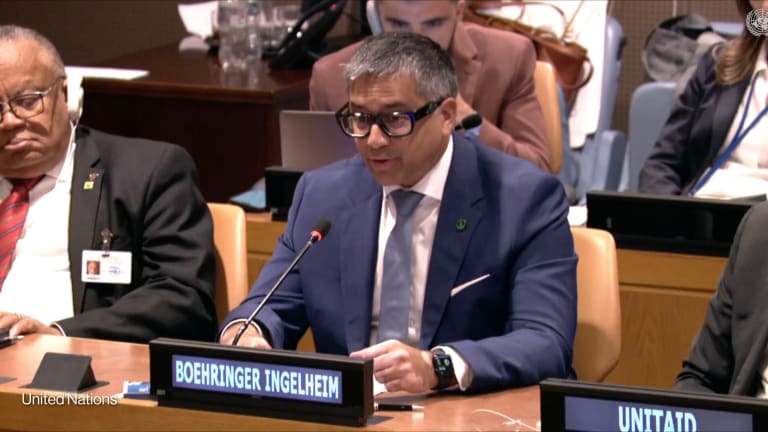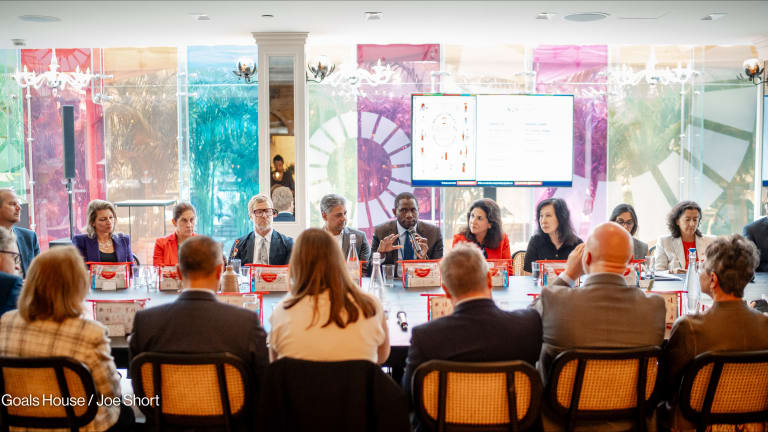
MANILA — Two months after the U.N. high-level meeting on noncommunicable diseases, the World Health Organization has launched an online knowledge platform to encourage further exchange of ideas and partnerships in tackling NCDs.
“The NCD community has a lot of room for improvement in breaking the echo chamber.”
— Jack Fisher, consultant for WHO’s Global Coordination Mechanism on NCDs.One of the chief goals is to gain new perspectives from outside the NCD community in the hopes of advancing the agenda of reducing premature deaths from the so-called chronic diseases, which include cardiovascular and respiratory diseases, diabetes, and cancer.
“Since the first U.N. high-level meeting on NCDs in 2011, the narrative has remained focused on the burden, instead of shifting to focusing on the opportunities to collaborate with different partners. We know there's no one single silver bullet. We know that there is a need for partnerships in particular, especially as the world unites around the Sustainable Development Agenda,” said Jack Fisher, consultant for WHO’s Global Coordination Mechanism on NCDs.
“I think it's fair to say that the NCD community has a lot of room for improvement in breaking the echo chamber. We need to bring together new stakeholders, to form new partnerships and thus create new solutions. These new actors bring different skills, experiences, and resources, which will allow us to think outside of a siloed approach to tackle these complex health challenges … With the enormous epidemic of the NCD challenge, we can't continue thinking about a siloed approach,” he added.
As its name suggests, the Knowledge Action Portal contains extensive information on NCDs, such as a brief backgrounder on the diseases, communities of practice, country NCDs profiles, and relevant information linked to NCDs. Depending on one’s interest, the “Knowledge” section has a dedicated page tackling issues such as industry interference, or guides and case studies on the use of digital health for managing or treating NCDs. There is also a page that links to different campaigns organized by WHO and other actors.
Another feature is a page titled “Research Connect,” which Fisher described as a marketplace connecting individual researchers, organizations, and institutions. It is currently in test mode, or beta version, but will allow users to find experts or institutions across the globe who are knowledgeable in particular NCDs and/or their risk factors.
The platform integrates several social media functions, such as uploading and “liking” information posted on the portal. Users also get to have their own profile page, which briefly describes the user, who they’re following and their followers, and what information or resources they’ve posted. It provides other users’ profile suggestions and includes a direct message function for those who’d like to connect or discuss in private.
At anti-tobacco conference, a race to beat industry tactics
Amid a "new era of deception from the tobacco industry," parties at this week's global meeting in Switzerland are trying to stay vigilant.
While the platform aims for inclusivity, it also hopes to keep away individuals coming from what Fisher described as “health-harming industries,” such as those from the tobacco and alcohol industries — or at least prevent them from influencing discussions within. Information uploaded on the site goes through a screening procedure, or may be filtered by admin if flagged “unsuitable.”
“Public health has battled health-harming industries who have tried to muddy the waters in terms of evidence and public discourse for over half a decade — specifically around nutrition and tobacco. While these and other public health challenges continue, health advancements have been made through multisectoral and multistakeholder action. This should give those wishing to find the common goals to beat NCDs inspiration going forward,” Fisher said.






